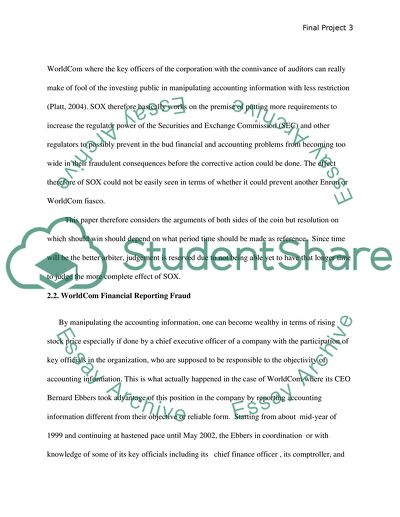Cite this document
(The Sarbanes Oxley Act: Boon or Bane Case Study, n.d.)
The Sarbanes Oxley Act: Boon or Bane Case Study. Retrieved from https://studentshare.org/law/1749554-mgt-5000-final-project
The Sarbanes Oxley Act: Boon or Bane Case Study. Retrieved from https://studentshare.org/law/1749554-mgt-5000-final-project
(The Sarbanes Oxley Act: Boon or Bane Case Study)
The Sarbanes Oxley Act: Boon or Bane Case Study. https://studentshare.org/law/1749554-mgt-5000-final-project.
The Sarbanes Oxley Act: Boon or Bane Case Study. https://studentshare.org/law/1749554-mgt-5000-final-project.
“The Sarbanes Oxley Act: Boon or Bane Case Study”, n.d. https://studentshare.org/law/1749554-mgt-5000-final-project.


